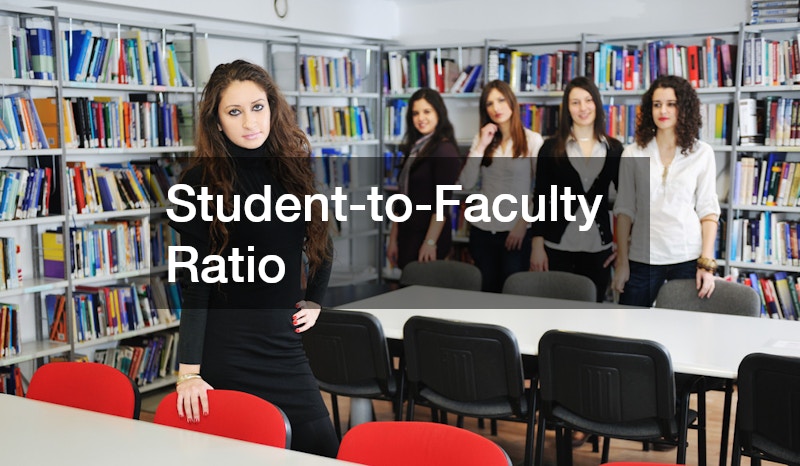Are you in the process of looking for psychology schools in Illinois? This can be a challenging process, but there are a few important factors to consider that will make your choice easier. As prospective students embark on the journey of selecting the perfect college or university, a multitude of factors come into play that can significantly impact their decision-making process. From the quality of education and available courses to living arrangements and financial implications, every aspect deserves careful consideration. For those with a keen interest in psychology, identifying the best psychology schools in Illinois becomes a paramount concern. Illinois offers a diverse array of educational opportunities with outstanding institutions that foster both academic excellence and personal growth.
In this article, we delve deep into what makes the best psychology schools in Illinois stand out among their peers, while simultaneously exploring essential life facets such as housing, commuting, and financial aid that contribute to a comprehensive college experience. We aim to provide an insightful guide that not only highlights top educational locations but also addresses real-life concerns students may encounter. With a balanced overview of both academic and extracurricular facets, students can embark on their educational journey well-prepared and informed. Join us as we navigate through the intriguing landscape of higher education in Illinois, examining necessary expenditures, student facilities, and much more.
1. Education Expenses

Navigating the financial landscape is a crucial aspect of pursuing higher education. Tuition fees are often the first consideration when evaluating the best psychology schools in Illinois. Illinois is home to a range of institutions that vary in cost, from public universities to private schools. Prospective students must account for these expenses and explore options such as a loan from credit union and scholarships to alleviate financial burdens.
In addition to tuition, students should be aware of other associated costs, such as books and supplies, which may necessitate the consultation of a bankruptcy attorney for financial planning advice. Budgeting for education expenses involves a comprehensive view of one’s financial status, taking into account both direct costs and hidden expenses like activity fees and lab charges. To make well-informed decisions, students should reach out to financial advisors and current students for guidance.
When considering the best psychology schools in Illinois, it is also essential to evaluate the return on investment. Degrees from highly reputable programs can lead to promising career opportunities, justifying higher upfront costs. Students must weigh the long-term benefits against the immediate financial commitment to ensure a rewarding educational experience that leads to a successful career in psychology.
2. Housing
Choosing suitable housing is a significant part of the college experience, affecting both academic performance and personal well-being. Illinois offers diverse living options, from on-campus dormitories to off-campus apartments decorated with tropical wallpaper and equipped with modern amenities. Each option has its own set of advantages and considerations.
On-campus housing provides convenience and facilitates close-knit communal living, which can be particularly welcoming for first-year students. Some of the best psychology schools in Illinois boast campus housing that fosters a supportive learning environment where students can easily access academic resources and peer support. On-campus living ensures that students are fully immersed in the vibrant college community.
Off-campus housing offers greater independence and the opportunity to explore local neighborhoods. This option may also introduce students to opportunities like coworking office space, where they can engage in internships or part-time jobs. When deciding, students should consider factors such as proximity to campus, cost, and access to public transportation. Deciding on suitable housing requires balancing budgetary constraints with desired lifestyle and location preferences.
3. Daily Commuting
Daily commuting is another aspect prospective students should contemplate when choosing the best psychology schools in Illinois. Depending on the location of the chosen institution, commuting may entail a simple walk to class, cycling, public transportation, or using a personal vehicle. Each commuting method carries its own set of considerations and expenses.
Students who plan to drive should be prepared for expenses such as car repairs, fuel costs, and parking fees. Whereas those relying on public transportation must factor in the cost of transit passes and schedules. Schools in urban areas typically offer robust public transport options, while rural campuses may require careful planning for daily commutes. Prospective students should evaluate the available commuting options as part of their decision-making process.
Commuting also impacts a student’s lifestyle and schedule. Less time spent on commuting leaves more time for academics and extracurricular activities. Furthermore, enjoying a stress-free commute contributes to overall well-being and enhances the college experience. By efficiently managing transportation needs, students can strike a balance between academics and personal life.
4. Public vs Private Universities

Selecting between public and private universities is a frequent consideration for students aspiring to enroll in the best psychology schools in Illinois. Each type of institution offers distinct features, shaping the student’s educational journey. Public universities typically have larger student bodies and lower tuition costs due to state funding, while private institutions provide a more personalized learning experience with smaller class sizes.
Private schools often emphasize intimate learning environments and customized academic support. They are ideal for students seeking focused attention and tailored curriculum opportunities. However, it is important to note that private universities usually entail higher tuition fees, necessitating consideration of financial support options like scholarships or a loan from credit union.
Conversely, public universities have extensive resources and diverse academic programs. They offer a vast array of majors and extracurricular activities, providing students with ample opportunities to explore their interests. Students considering public higher education institutions in Illinois must prioritize factors such as academic focus, available facilities, and affordability when making their choice.
5. Financial Aid
Financial aid plays a pivotal role in making higher education attainable. Students attending the best psychology schools in Illinois are encouraged to explore various financial aid options to alleviate the burden of tuition costs. Whether it’s grants, scholarships, or loans from credit unions, thorough research into financial support avenues can provide substantial assistance.
Scholarships are merit-based and awarded for academic excellence or specific talents, offering students a valuable way to finance their education without repayment obligations. On the other hand, grants are often need-based, helping students from economically disadvantaged backgrounds. Both types of aid require diligent application processes, so students should remain attentive to deadlines and eligibility criteria.
Loans are another option, but students should exercise caution and consider interest rates and repayment plans. Credit unions often offer educational loans with favorable terms, providing an alternative to traditional lending sources. Financial aid offices at educational institutions also serve as valuable resources, guiding students toward suitable funding options.
6. Local Healthcare Services
Access to quality healthcare services is crucial for students living away from home. When evaluating the best psychology schools in Illinois, consider the accessibility and quality of local healthcare facilities. Illinois boasts a wide range of medical services, with many schools offering campus-based health centers that cater to students’ needs.
University health services typically provide a range of medical care, including routine check-ups, vaccinations, and mental health support. Having convenient access to doctors and healthcare professionals contributes to students’ overall well-being, ensuring that any medical concerns are addressed promptly. This promotes a healthy academic environment and supports student success.
Some students may require specialized medical care or ongoing treatment, making it important to research nearby hospitals and clinics. Familiarizing oneself with the available medical services, including emergency care, ensures peace of mind throughout the academic journey. Additionally, having valid health insurance coverage is vital for managing unexpected medical expenses.
7. Student-to-Faculty Ratio

The student-to-faculty ratio is a significant factor when considering the best school for psychology in Illinois. This ratio indicates the number of students per faculty member, influencing the quality of education and personalized attention students can expect to receive. A lower student-to-faculty ratio often leads to an enhanced educational experience.
Smaller class sizes allow for more interactive learning environments where students can engage directly with professors and peers. This fosters a collaborative atmosphere, supporting students in developing critical thinking and problem-solving skills. Prospective students should evaluate the faculty-to-student ratios of different institutions to determine which environment aligns with their learning preferences.
While some students thrive in larger classes, others benefit from the intimate settings that certain schools offer. By investigating the student-to-faculty ratios of prospective schools, students can choose an academic environment that best suits their needs and aspirations. A personalized approach to education ensures students receive the support they need to excel.
8. Internship Opportunities
Internships provide invaluable hands-on experience, bridging the gap between academic learning and professional application. Students at the best psychology schools in Illinois should seek out internship opportunities that align with their career aspirations. Engaging in practical work experiences enhances theoretical knowledge and bolsters future employment prospects.
Many Illinois universities collaborate with local businesses and organizations to offer students access to meaningful internship positions. Fields such as psychology often require experiential learning, and institutions may have established relationships with healthcare centers, non-profits, and businesses with coworking office space for internship placements.
Internships also provide students with a chance to network and establish professional relationships within their desired industry. By participating in internships, students gain exposure to real-world challenges and develop critical skills that are highly valued by employers. The experience gained through internships is an essential component of preparing for a successful career in psychology.
9. Extra Curriculars
Extracurricular activities are a vital part of the holistic development process during college years. They allow students to engage in interests outside the classroom, fostering a well-rounded college experience. When considering the best psychology schools in Illinois, students should explore the variety of extracurricular options available to them.
Many universities offer extensive extracurricular programs, from sports and arts to volunteer organizations and student government. These activities promote social interaction and help students build life skills such as leadership and teamwork. In addition, engaging in extracurriculars can enhance a student’s resume, making them more attractive candidates for future employment.
Certain schools may also offer unique facilities, such as swimming pools. Students interested in maintaining fitness while ensuring a proper swimming pool ph balance can indulge in university-offered wellness programs. Ideally, extracurricular activities should complement academic pursuits, enriching the student experience and enhancing personal growth.
10. On-Campus Dining

Nutritional well-being plays a significant role in a student’s energy levels and academic performance. Most of the best psychology schools in Illinois offer a range of on-campus dining options catering to various dietary preferences and requirements. A diverse dining program ensures that students have access to fresh, healthy meals throughout their college journey.
Dining facilities typically offer meal plans that cover several dining halls and cafés on campus. These meal plans are designed to provide convenience and affordable nutrition. As students explore Illinois colleges, they should research available dining services, including options for vegetarians, vegans, or those with specific allergies.
Moreover, schools often host visiting vendors or distributors, such as Jarritos distributors, adding variety to the dining experience. On-campus dining also fosters social interactions, promoting an inclusive community where students can relax and enjoy meals together. Culinary facilities are integral to ensuring that students can focus on their studies with a healthy mind and body.
Choosing the right college or university is a complex decision that impacts both academic and personal growth. By exploring the best psychology schools in Illinois, students can identify institutions that align with their educational and career goals. Each school offers unique strengths regarding educational quality, campus life, and support services, contributing to a beneficial college experience.
Prospective students must consider a multitude of factors, including tuition fees, housing, commuting options, and student-to-faculty ratios while evaluating financial aid possibilities and exploring wellness and extracurricular opportunities. Taking a holistic approach when assessing potential schools ensures well-rounded preparation for a bright future in psychology or any chosen discipline.
By prioritizing personal interests, aspirations, and practical considerations, students can embark on their academic journey in Illinois with confidence and inspiration. Balancing academic challenges and personal growth will ultimately lead to a fulfilling college experience that establishes a solid foundation for future success.